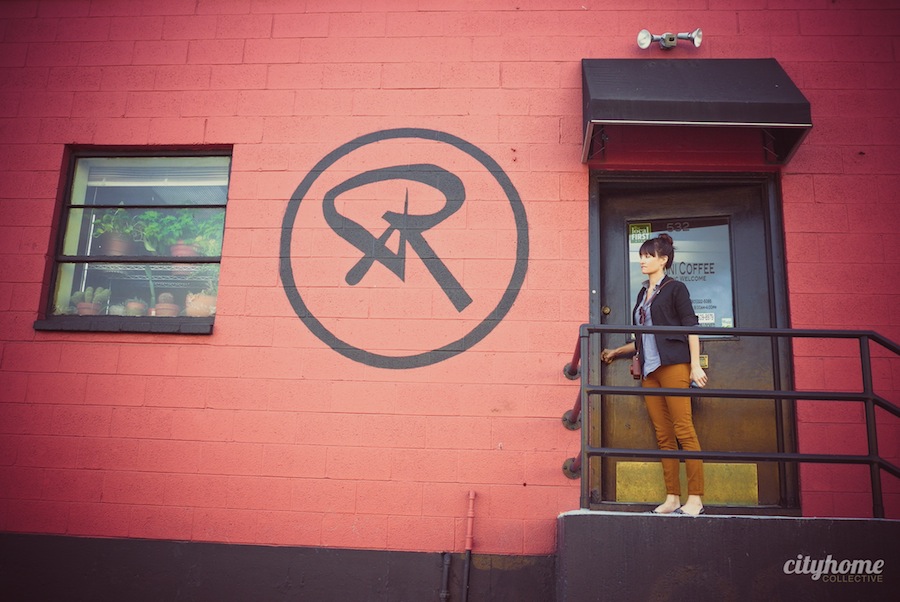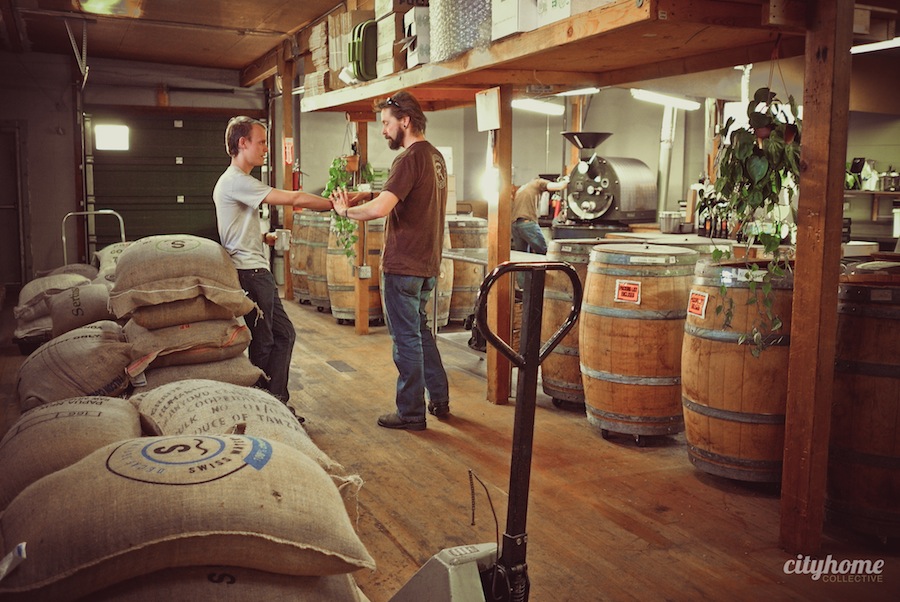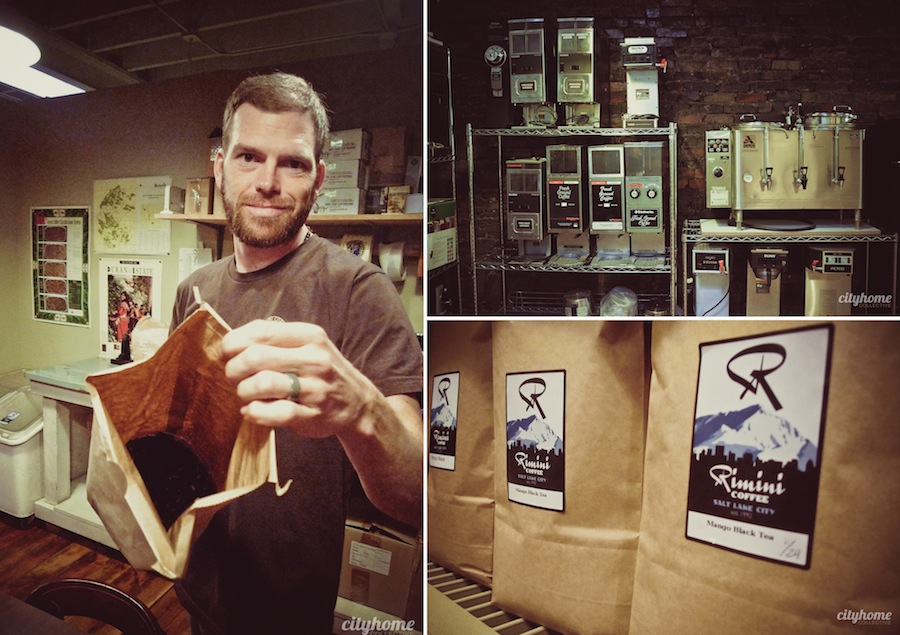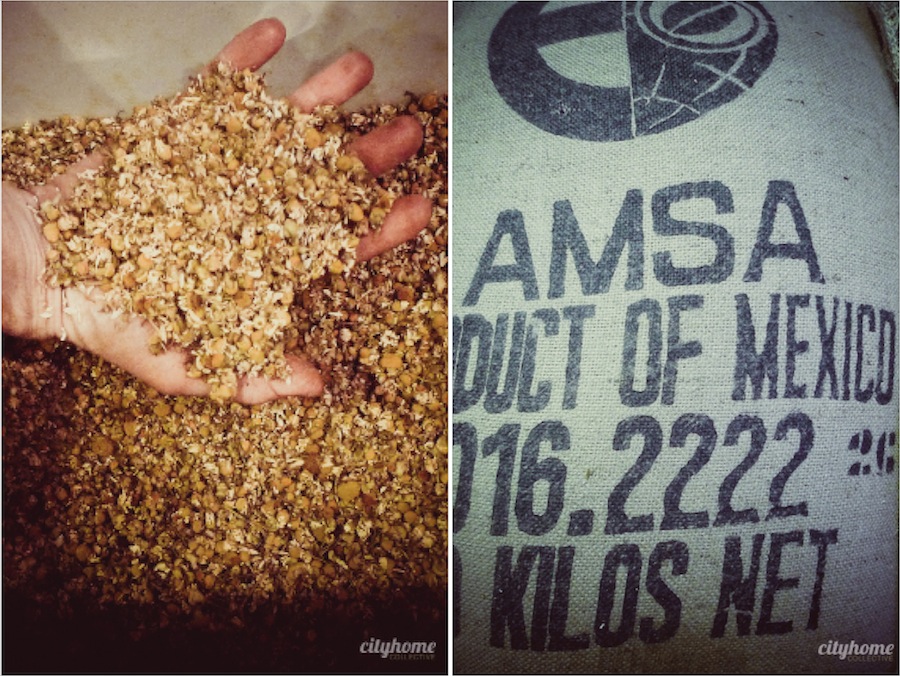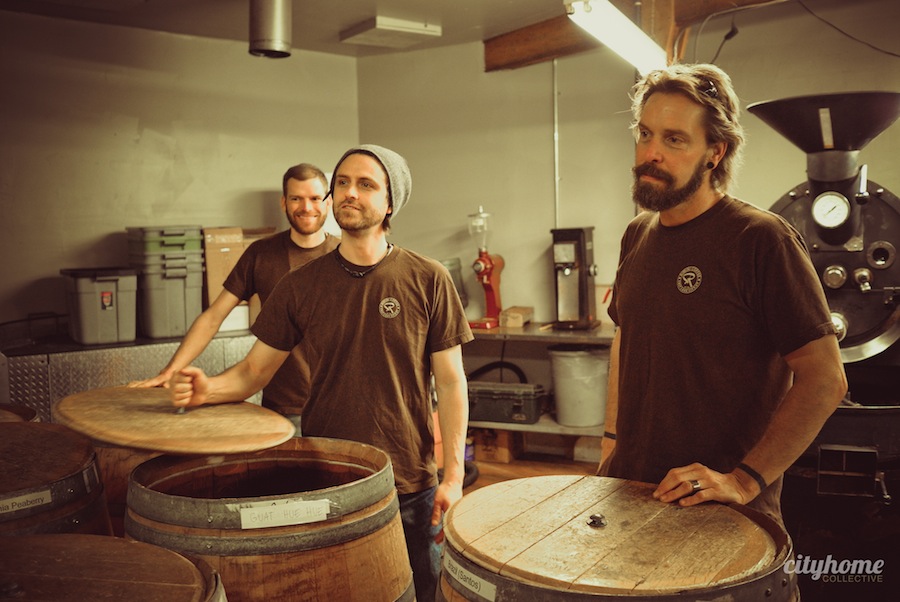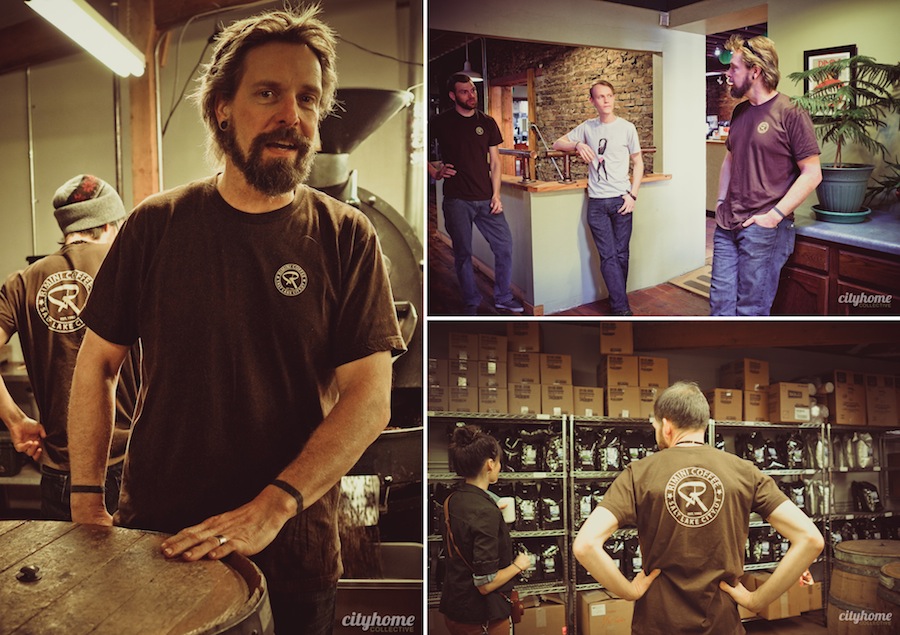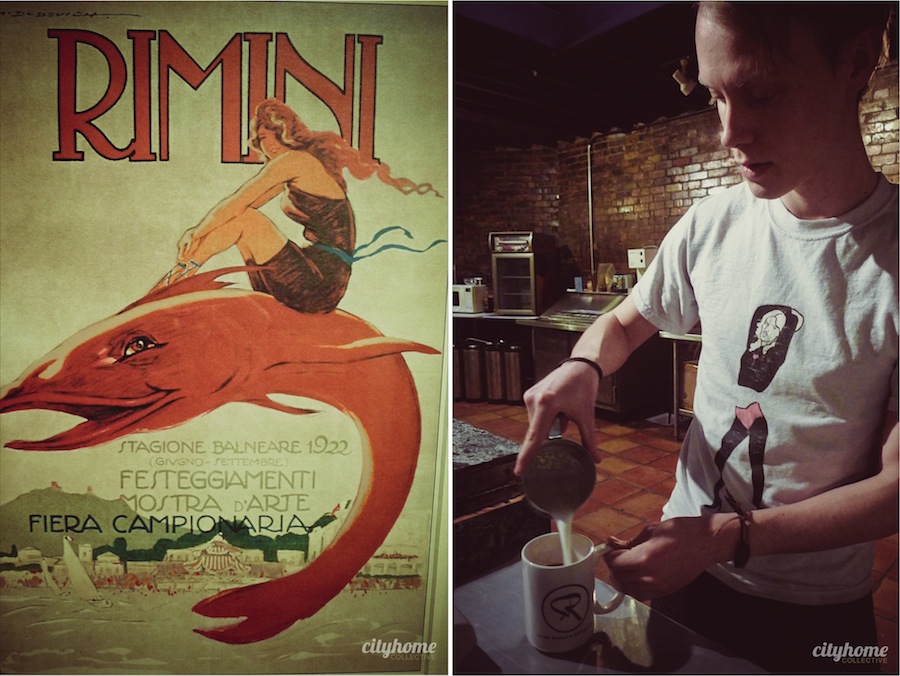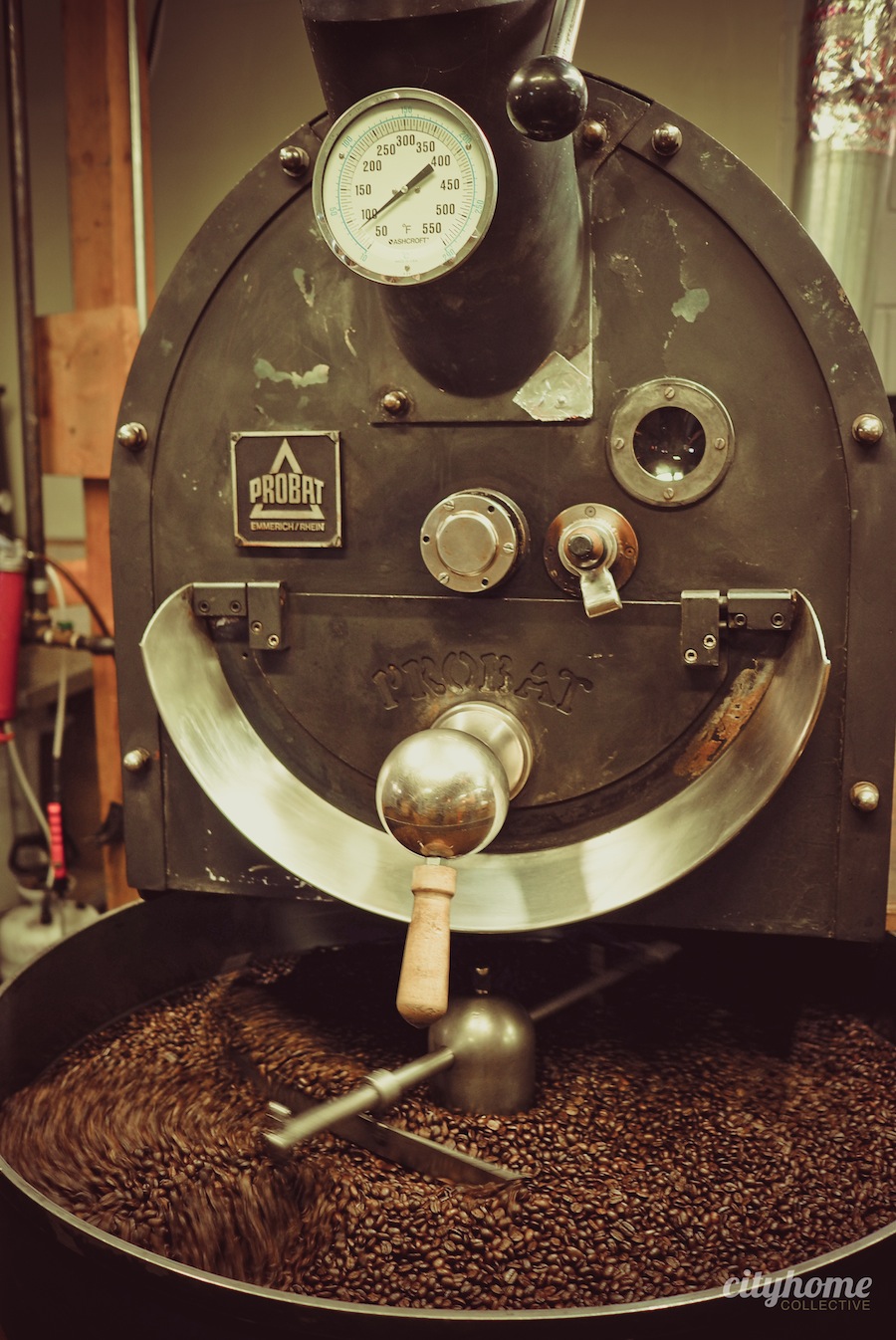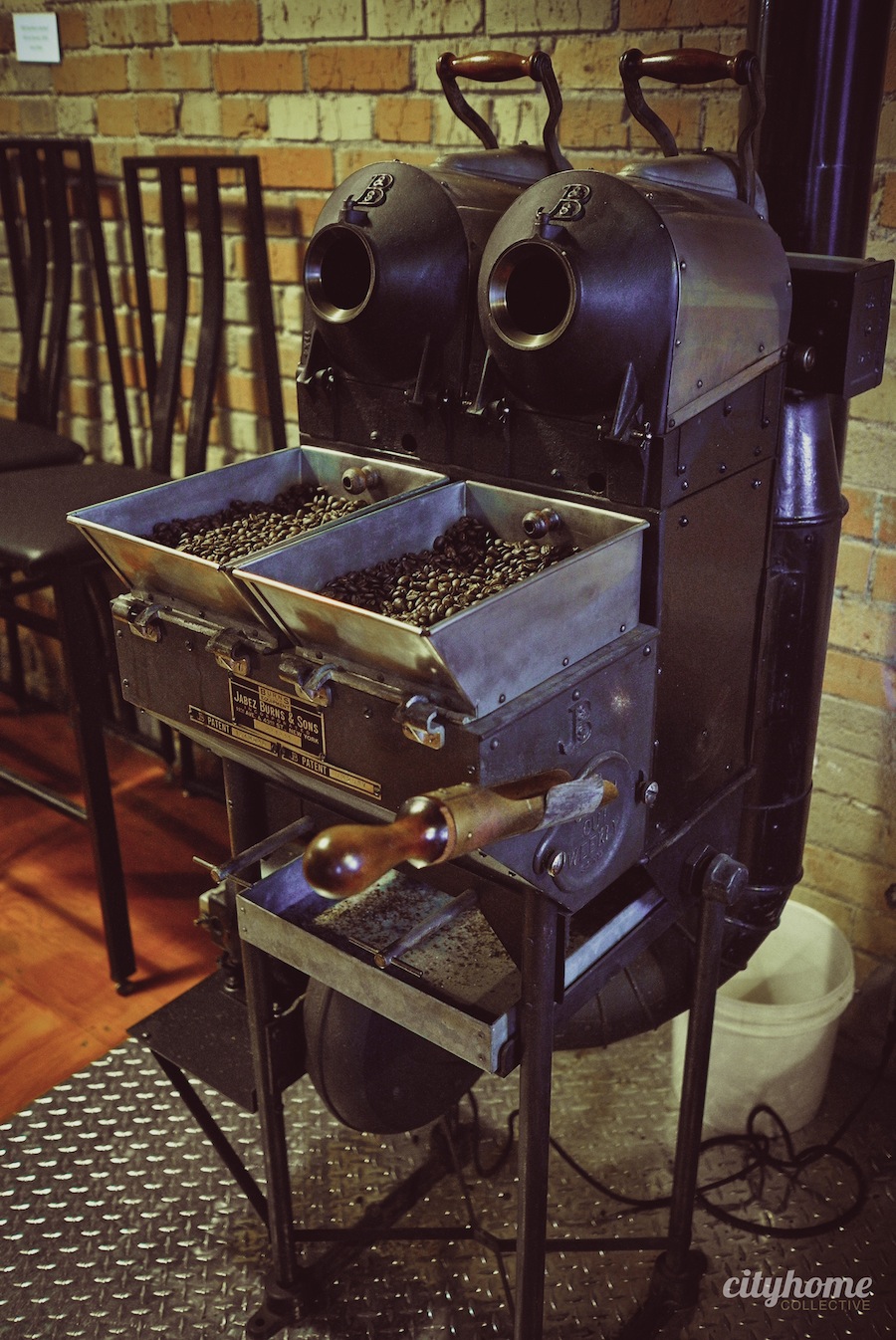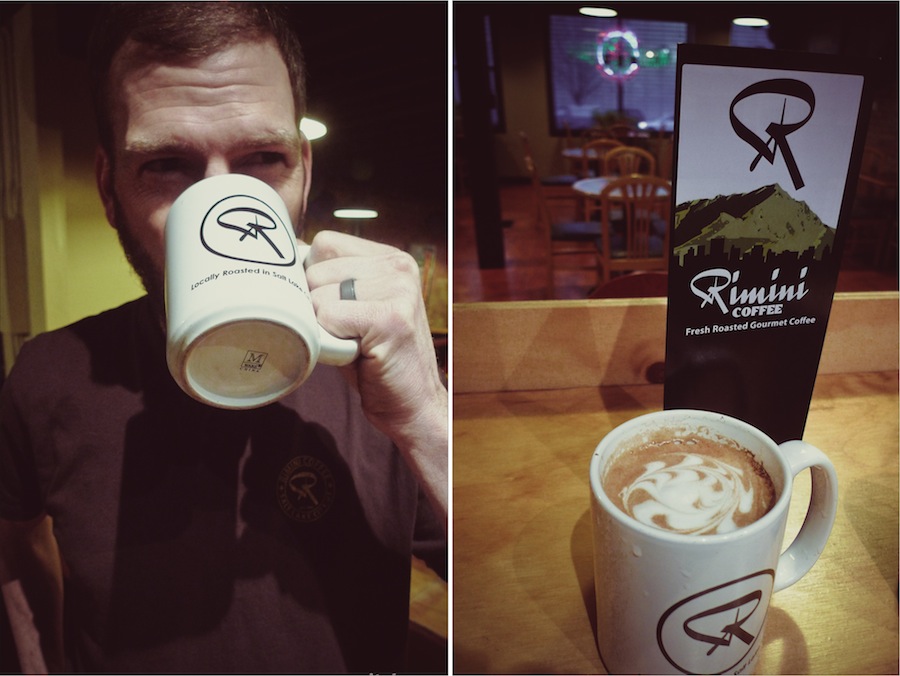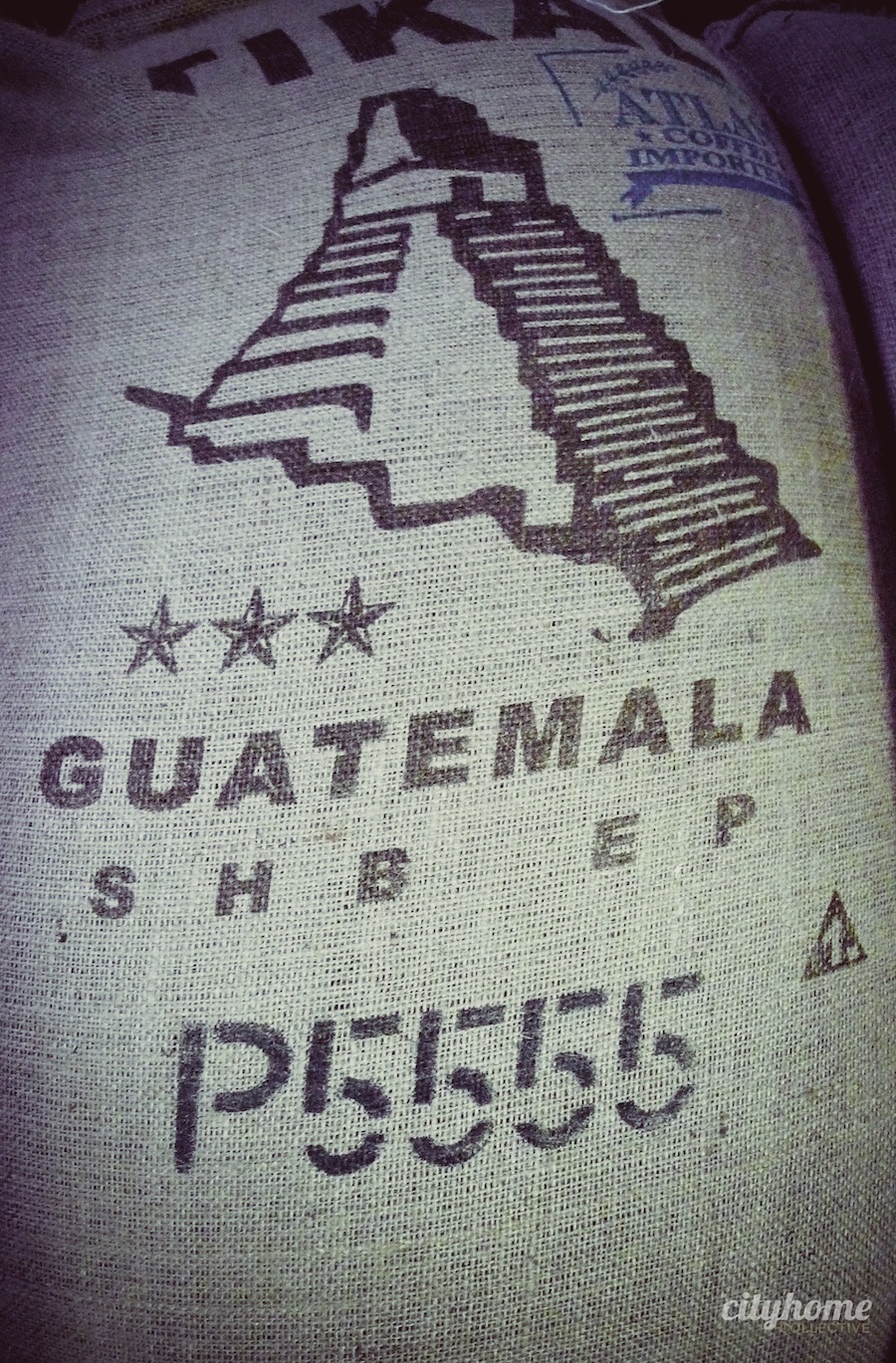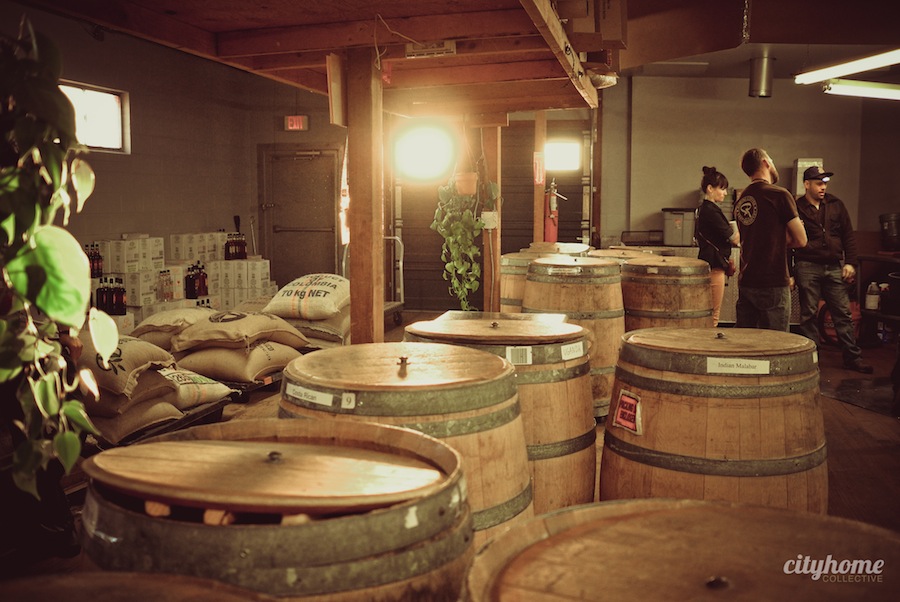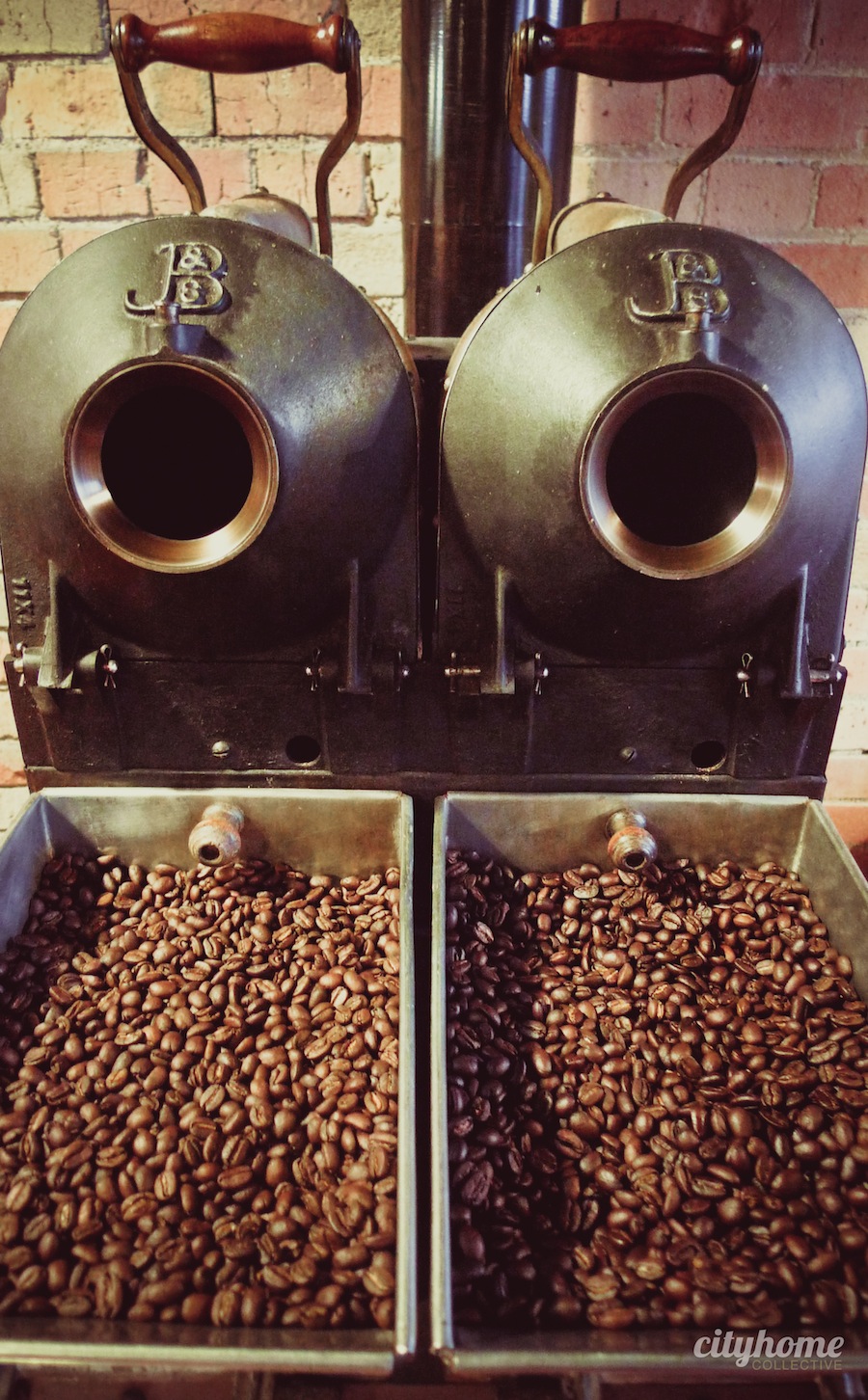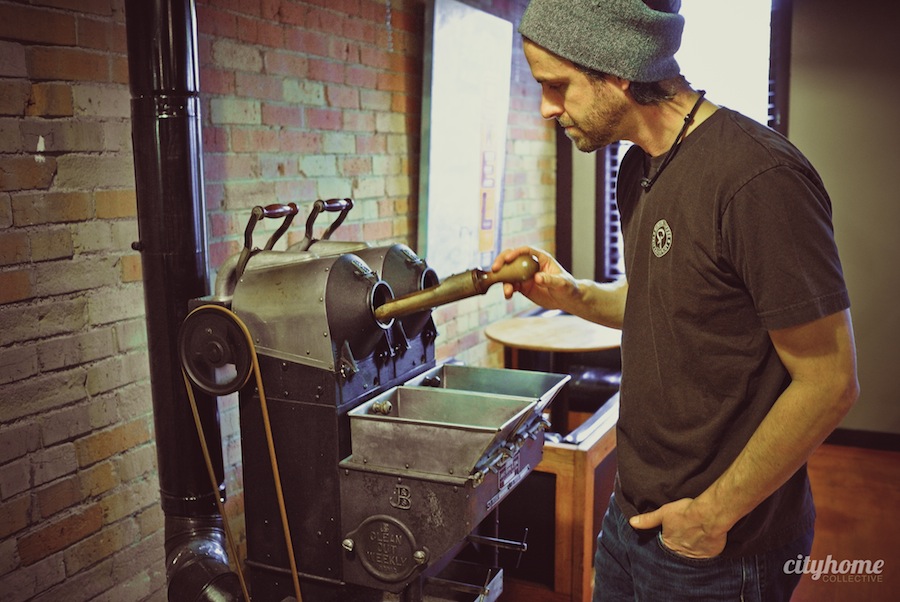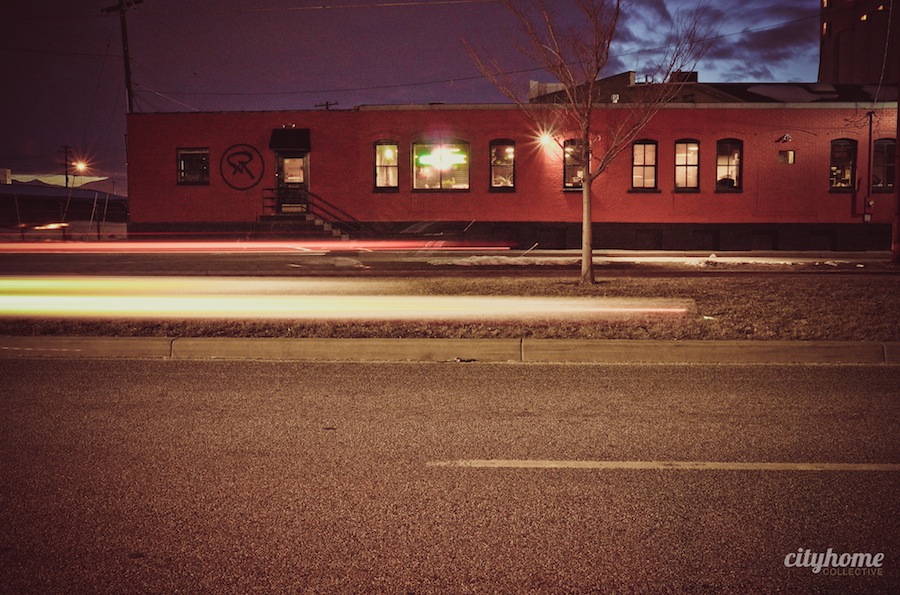Even if the name isn't readily recognizable, you've had a cup of Rimini coffee. Really. If you're a local who's been to any number of fantastic local joints for any number of meals, drinks, or snacks, then you've tasted the good stuff. And we're confident you liked it. Rimini has been a Salt-Lake roaster for over 20 years, and this coffee isn't f*cking around. These beans be good, and these roasters be damn sure they're doing things right. We had a visit and took a tour with a few of the fellas making Rimini work, and one fact was perfectly apparent: this is a business built squarely on a love of good coffee.
Rimini came to life in '92 when a wise, well-traveled gent had the tastiest cup of his life in Rimini, Italy. According to Rimini tea-guru and roaster, Miguel, the flavor "so inspired him as to seek out the roaster of that finite cup and start a relationship that would eventually bring that method, roast, and recipe to patrons of his SLC business." Some years later, the business was sold to Bob Evans, a man with equal passion for coffee and community, who has worked to bring Rimini to the finely-roasted, local-worthy cup of today. The branding has recently undergone some changes, thanks in large part to the efforts of our favorite super-citizen, Josh Scheuerman. He had the [clever] idea to give the bag a local touch, and the resulting logo is a dynamite nod to our city.
Rimini's retail location/coffee shop is at 532 S 400 W, where fresh beans can be purchased in 1- or 5-lb. bags. It also happens to be a right lovely spot to have a quiet cup and read/browse interwebs/chat with a pal. It's in this space that the magic happens, and Mark, the head roaster, showed us a thing or two in the small-batch drum and double-barrel roasters they've been using from the jump. It's more an art form than anything; raw [and green] beans go in, the old-timey machine starts cookin', and Mark patiently heeds the subtle sounds and smells, and checks scoop after scoop for the dark/medium/light roast he wants. Rimini's 'back room' has bags upon bags and barrels aside barrels of raw beans from all over the land. They're adamant that they serve it up crisp, so once roasted, the short shelf life of freshness is paid due respect. And while coffee is clearly the specialty here, they're armed with a vast and impressive knowledge of teas, and whipping up their own choice chai in the basement, as well. Triple-threat.
You know that we COLLECTIVELY pine for the locals and businesses that make SLC so stellar, and Rimini is firing on all cylinders. See below for the [lengthy] list of businesses currently serving up these flawlessly-crafted beans, and then go see for yourself what the fuss is about at Rimini's retail location. Mention the cityhomeCOLLECTIVE blog, and these goodly fellas will give you $0.50 off a 1-lb. bag of "oh, shit, that's good." We shot a few questions at Miguel, Mark, and Josh -- read on and get to know what you're sipping...
You told us a cool story about the supposed origins of coffee. We don't wanna screw it up...can you tell us again? Mark: The legend goes that the Ethiopian goat-herder, Kaldi, discovered coffee in the highlands of Ethiopia [Kaffa Forest region] after noticing that his goats, upon eating berries from a certain tree, became so spirited that they didn't want to sleep at night. Kaldi talked about his findings to the abbot of the local monastery, who made a drink with the berries and discovered that it kept him alert for the long hours of evening prayer. Soon, the abbot had shared his discovery with the other monks at the monastery, and ever-so-slowly knowledge of the energizing effects of the berries began to spread. As word moved east and coffee reached the Arabian Peninsula, it began a journey that spread its reputation across the globe. Today, coffee is grown in a multitude of countries around the world. Whether it is Asia or Africa, Central or South America, the islands of the Caribbean or Pacific, all can trace their heritage to the trees in the ancient coffee forests on the Ethiopian plateau.
What are you doing for Rimini right now? Mark: I've been roasting coffee, as well as buying the green beans, syrups, and confections for Rimini since 2001. Josh: I started working for Rimini because I wanted to learn more about coffee. I’ve drank a lot of beer and tried my hand at making my own, so this is another passion of mine that I wanted to pursue. Right now, I’m working on branding, graphic design, and social media. When I started two years ago with re-branding of the old logo, I wanted to preserve some of our history, but leave the Italian flag behind. We have been roasting downtown for over 20 years, so I wanted to have downtown juxtaposed in front of the mountains. With the completion of our remodel, we hope to start hosting cupping classes and knowledge-based coffee courses. Miguel: Currently, I am on a mission to slowly perfect my skills as a roaster. The subtle nuances and particulars to roasting are a quiet conversation amidst a cacophony of other sounds. It’s not a matter of memory or habit, or something just mechanical. It’s more a sensory occupation. Working and apprenticing with Mark has afforded me slow introduction to that quiet conversation, the sounds and smells and sight needed to pull the exact batch of coffee you desire. Each bean roasts differently, colors vary, sugars caramelize at different times, smokes release at curtain temperature, soluble oils adhere flavor to the beans at a precise moments. These are only a few subtle reactions that determine the character of a roast. I endeavor to know all I can about it. Also, with our remodel at Rimini, we now have a kind space to add our growing assortment of brewing devises, slowly adding to our collection of traditional, nontraditional and unheard of brew methods...a coffee & tea lover’s laboratory.
Why don't more people know about these tasty beans? Miguel: Many local restaurants, resorts, drive-thru joints, law firms, hotels, cafés, coffee houses know of our coffee specifically due to our wholesale end of the business. Retail has always been part of our success. Those who randomly taste some of our blends and love it eventually find themselves in our foyer either weekly or bi-weekly. There are a handful of local roasters in Salt lake valley and throughout the state who have a great cup to offer, yet in sheer numbers, all of us are dwarfed by the average consumers settling for a below-average experience. The Starbucks and Folgers of the world are truly still the pervading leaders in average joe’s cup o' joe. I seriously believe that over half the populous who drink coffee have no idea they can buy it roasted the same day.
What sets Rimini apart in the roasting process? Talk about why yours is the good stuff. Mark: At Rimini, we roast to order in a small micro-batch roaster. We don’t want our coffee sitting on the shelf and getting old. We specialize in roasting our beans to peak potential. We believe that we as roasters need to protect the integrity of the coffee bean so we can get the best aroma and flavor out of each bean. Part of this includes educating our customers so they know how to grind, brew, serve, and store the coffee [and keep their customers happy]. Miguel: We cup all our coffees to survey what brings out the liveliest or more complex characteristics of that roast. Be it Cinnamon, City, Vienna, or French Roast. All our varietals, blends, and single origins have been integrated through multiple roasting and brewing methods to key in where they best belong in profile. Be it drip coffee, percolator, clever, jet boil, siphon, melita, chemex, espresso, bialetti, neopolitan, ibrik. We have a fountain of knowledge of what roasts will best suit your taste and brew method. Josh: Locally, fresh roasted coffee. Our beans are usually roasted and to the customer in 48 hours or less. Coffee, like every product, has a shelf life, and the quality goes down the longer it’s on a grocery store shelf or left open on your counter. Customers can pick up a bag at our roaster that -- most likely -- was roasted within 24 hours. Buying locally-produced products goes hand in hand with buying quality, as well.
Tell us your favorite bean/flavor. Josh: I grew up on dinner coffee while traveling around and playing hooky. I didn’t know what good coffee tasted like until I started learning about coffee. Besides the occasional white mocha, I prefer city roasts that are mildly acidic and full bodied. Miguel: Hands down, Baldoria. Head-to-head 2nd and 3rd place are Single-Origin Mexican Organic and Canyon Blend. My growing interest/new bean in town is Ethiopian Kaffa. Mark: My favorite roast is probably our Baldoria blend. It has a wonderful lingering full body with a nice nutty base, and subtle hints of berry and cocoa with an exquisite caramel-like sweetness.
Who's drinking Rimini? Or better put, who's dealing it locally? Great Harvest Bread Co., Ruth’s Diner, Log Haven, Dodo Sugar House, Tony Caputo’s [15th & 15th], Kokopelli’s Koffee, Café Madrid, Atlantic Café, Lamb’s Grill, Salt Lake Film Society, Porcupine Pub and Grill, Spin Café, Good Karma [off Main in Park City], Blue Lemon, Blue Plate, Art City, Tin Angel, Blue Iguana, Finns, Sugarhouse Coffee, City Brew Coffee, Coffee Noir, Zy Restaurant, Grilla Bites, Higher Ground...
Name three things that folks don't likely know about coffee. Mark: 1) Coffee is the second highest imported good in the world second to oil, 2) each hectare of coffee produces 86 lbs. of oxygen per day, and 3) coffee is a natural pesticide. Miguel: 1) That a Yemeni variety of coffee roasted to a medium body Vienna roast smells like black pepper and blue berries simultaneously, 2) England became a country known more for tea rather than coffee when attempts to rival the Dutch in world coffee production failed due to their “Arabica” beans susceptibility to a disease called 'rust leaf'. The Dutch took the lead in the 1600’s due their fortunate choice of bean, the “Robusta”, and 3) a potential newcomer to slowly enter the global coffee market is Nepal. More than 14,000 households, individual families, and farmers are diversifying as a collective. This means that if enough people steer attention toward the efforts of these farmers, the coffees they produce, and the growing supporters who help facilitate their ability to compete in the global coffee market, Nepal’s own farmers would have their hands on the wheel in altering the entire economy of the country. Josh: 1) What it should really taste like, 2) the caffeine content difference between drip and espresso, and 3) it’s a 1000+ year tradition that every continent has had a hand in shaping.
Rimini does tea, too. Why do you knwo so much about two of the world's best bevvies? Miguel: Tea and Coffee, sisters indeed, traveled the globe together since boats began to float. Can’t really offer one without the other close by. They’ve shared trade routes with curry, cumin, opium, coy fish in barrels, and Bengal tigers for traveling circus acts. Tea has equal history and bragging rights as coffee boasts. We drink a lot, mix and match recipes, and there are surprisingly juicy stories from across the the globe about the commissioning of many explorers and vessels questing, back stabbing, conniving and trysting for tea.
Who's the one human you’d most like to sit and chat with over a hot cup, and what's the one question you would ask him/her? Josh: I would love to have some cowboy, campfire coffee with Edward Abbey. Reading about some monkey-wrenching alongside the natural beauty of southern Utah is great coffee literature. It could be the worst coffee, but I’m pretty sure it would still be the highlight of my life. Mark: I would like to sit down with myself right after I came out of my mother’s womb and ask, "what was that like?" Miguel: I wanna be witty and say I would like to have a hot cup of cheap black in the Double RR Diner in Twin peaks, chatting it up with the Log Lady and Dale Cooper...and I’d have to ask “what happened to Chester Desmond”? Truth, though, is the best cup I can ask for doesn’t happen nearly enough, and it’s with my wife at home or camping. I always ask her if she likes her coffee.
Anything coming down the pipeline for Rimini that you care to share? Mark: We are going to be available at farmers markets this summer. We are always trying to find new tasty beans and we definitely like to do local events to help out the community. Miguel: More community shared events, co ops, farmers markets, the growing lab of goodies, trainings available & scheduled cuppings. Marketing and branding will improve, as well. Local involvement with fund raisers and charity events. Josh: Rimini Coffee is starting to support athletes to stoke their adventures with some more caffeine. Local climber, Kyle Dempster; snowboarder, Brock Butterfield; and skier, Julian Carr, are a few athletes that are having a little caffeine provided by Rimini for their adventures. We are always looking for more opportunities in our local community with co-op’s and farmers markets. Stay tuned for a couple of surprises, as well...
Rimini Coffee | 532 S 400 W | 801.539.1210
